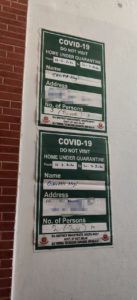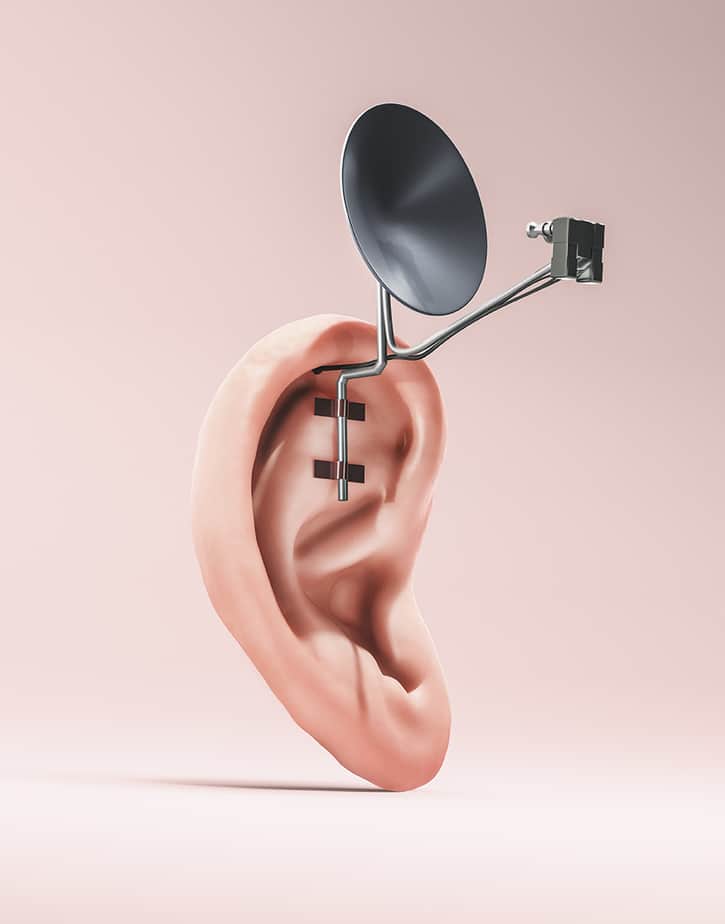The measures for containment of Coronavirus on a war footing have paved the way for the disappearance of privacy of the infected. Public interest is riding roughshod over private interest
Three weeks ago on 22 March, I received messages revealing that Covid-19 had entered my district. The proof? Photos taken of posters pasted outside homes put under quarantine. The poster contained the dates of the quarantine period, the name of the person who is suspected of being infected and the number of persons in the household. Most disconcertingly, it gives the full-fledged address of the home in question.
Along with the anxiety that a possibly infected person could be living in our residential complex came the shock that this address and information on the poster was now being circulated in various chat boxes and groups of WhatsApp. I had been out and about just a few days prior — if I were to be one of those suspected or infected by the virus, how would I feel about my address being plastered on the internet as a warning to stay away?

Alas, Indians have reacted unpredictably to the devastation. People working in essential services have been driven out of their homes or threatened to leave by their neighbours, people from the north-east of India have been racially abused and even spat on by those who foolishly profile them as Chinese – the first bearers of the pandemic. So, would suspects or worse, proven cases of Covid-19, be safe from their untested or uninfected counterparts in society?
In the midst of all this soul-searching came the news that the government of India’s app called the Aarogya Setu, was tracking the real-time movements of citizens to determine if they have been in the proximity of Covid-19 patients. The question is: Is it in a sneaky way also allowing the state to put unsuspecting citizens under surveillance?
The app reportedly tracks a user’s identity, has the ability to access their phonebook and contacts without asking for user permission. While tracking their movement in real time, it also continuously checks if other people who have downloaded the app are in the vicinity of the user.
A host of people seem unaware or uncaring of this invasion of privacy, as the number of downloads stood at 10 million. Basically, these 10 million people can be easily snooped upon. So, could it be that the government, in the thick of all the panic and fear of the virus, has found the perfect time to sink its teeth into people’s information which earlier many had opposed. But with people scared about whether they will survive the virus, they don’t seem to be worrying about lack of privacy.
Surveillance is taking place on a large scale from this app and also other methods, with districts and even residential complexes being monitored. In Delhi, for example, Dwarka Police had issued a warning to residents living in DDA and CGHS apartments to not step out of their homes for walks. According to the ‘advisory’, the police had received many calls through PCR and complaints through social media that people were roaming around inside the complexes without regard for the 21-day lockdown.

The Dwarka Police said CCTV footage would be monitored and guards stationed at gates would take down details of violators. It also said, “Regular surveillance is being done through physical verification and technical monitoring”. The SHO of Dwarka Sector 23, Santan Singh said the advisory was issued as people were still going out for walks inside their colonies and in parks.
These moves can be easily defended as strict measures to arrest the spread of Covid-19; surveillance for the greater good of society. Who can argue with that? So, in that same spirit, there are now over 25,000 people who were instructed to quarantine themselves at home, whose phones are now under surveillance. This was announced on April 1 by the Delhi government as many were supposedly not following orders.
“We are tracking the cellphone locations of Covid-19 suspects. We have sought the help of police in tracing whether these people who have been instructed to be within homes have moved out of their houses in the past few days. Everyone who has been contacted by suspected individuals is being tracked down and being quarantined immediately. Using the numbers, we will trace whether they have been adhering to the quarantine,” Chief Minister Arvind Kejriwal announced.
Police in Tamil Nadu’s Tiruvallur district are using the app CoBuddy which uses facial recognition and geo-fencing to keep track of people placed under quarantine. An article by Medianama says that the app accesses the subject’s GPS location and then they are required to enter an image of their face. After that, the police send them prompts at “random hours, 2-3 times a day” to verify their faces. In fact, the app continuously checks for the location of the phone and sends an alert to the police if a person steps outside of the geofence, which can be set from anywhere between 10 and 100 metres.
Even the World Health Organisation (WHO) which has been facing increasing flak for how it handled the outbreak of Covid-19 in China, has acknowledged on its website that its Country Office for India has been working closely with Ministry of Health and Family Welfare on preparedness and response measures for Covid-19, which it said includes surveillance.
By the time the world or even the country is truly safe from the virus and its aftereffects, surveillance would probably be all-encompassing. The government will be able to track each and every movement — from what one eats, where, with whom, which bus she/he takes or metro, et al. While this may be happening already in some measure, the future would be one where the government can intrude on privacy in what it calls public interest.





